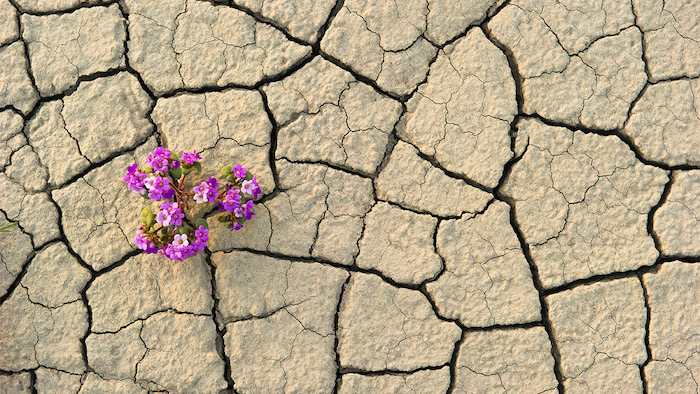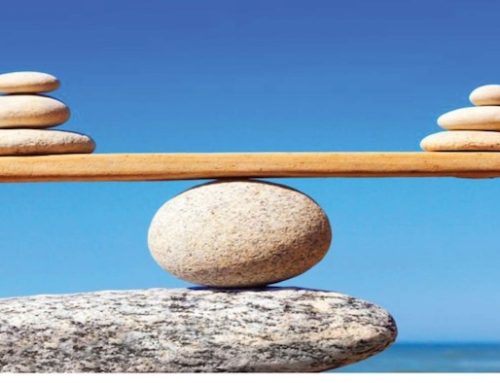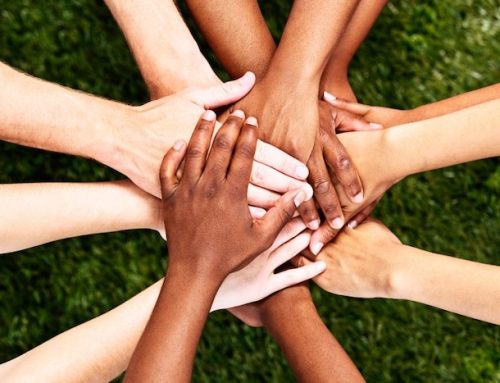Every day of life is a test. Will my mind make the correct decisions? Will my body handle what it has to bear? Will my heart be held in comfort or be broken? Will I be better or worse off when I lay my head down to sleep again?
Our world is in transition; one day historians will probably point to these years as an interregnum. We are in that uncomfortable between-place of past stability and future unknowns. Like in the suspension of the bardo: between worlds. We have enjoyed a long period of relative peace and global well-being that now faces a number of disturbing challenges. The tensions of the old Cold War—between authoritarianism and liberalism—are back. As a result, globalism is in retrograde and with it the prospect for peaceful coexistence. Decades of fossil fuel consumption have now produced an existential threat to humanity, although many of us are in denial. Our democracy in the United States is becoming highly anti-democratic. By 2025, all three branches of our federal government may be controlled by a radical-right minority, as well as enough state legislatures to force a constitutional convention to codify their minority power for generations. (It takes 34 states to call a convention and 38 to ratify amendments under Article V.) And the next big thing: artificial intelligence (A.I.), is looking everyday more like the last big thing: nuclear power. Will it transform our lives making them better, or will it destroy us? I expect that like nuclear power, A.I. will most likely be a mix of blessings and curses, except this time we will all be participants in this Manhattan Project, and we will all have the nuclear codes. Gosh, what could possibly go wrong?
As Jerome Roos, a political economist at the London School of Economics recently wrote, “The solutions we pursue today—on global peace, the clean energy transition and the regulation of A.I.—will one day come to form the basis for a new world order.” He argues, progress and catastrophe are engaged in “an endless dance of creative destruction, forever breaking new ground and spiraling out into the unknown.”[1] It seems both thrilling and terrifying; like being strapped to the self-infatuated Elon Musk’s SpaceX Starship: will we “slip the surly bonds of earth … and touch[ ] the face of God,” or be blown to smithereens?[2] One thing I have learned in life is that when uncertainty is at peak levels, one must be both strong and flexible—to be physically, mentally, and emotionally resilient—to face what comes for better or worse. To steel thyself. When things one does not control seem to be out of control, personal resilience is paramount. Unfortunately, Americans are far from ready to deal with the new realities we face. Many Americans are sleepwalking into the future, while many others are self-absorbed in their own pity parties.
In the last several years in America, victimhood has become a prevalent cry in every corner of our society. While many claims are valid, grievances have also become a reflexive response deployed in even the slightest occurrence of dissonance—where what happens doesn’t fit with someone’s expectations of how they should (ideally) be treated. I understand that everyone wants a free backrub and a wad of free cash, but crying foul has become a national pastime. It has become an endemic cultural marker of American society. It’s not just the woke left who deploy it; it is equally asserted by MAGAs and everyone in between. Trump’s entire 2024 presidential campaign is grievance-based. The poor me/poor you, sympathy/empathy paradigm to attract and bind voters to his own contrived victimhood to return him to the Oval Office. His go-to campaign line is “I am your justice,” as if MAGA supporters are disenfranchised victims of injustice. Today in America, from the young lesbian black girl to the old misogynist white man, we have become so thin-skinned it is a wonder we can even get through the day. The allure of victimhood has weakened America right when we need generational strength.
Further, victimhood is now claimed even when no consequences have been endured. Today, if professors in American universities don’t warn their students of course material that might trigger their personal sensitivities, many students claim they have been wronged before even being subjected to the potentially offensive material. They plead for protections from unrealized and largely unforeseeable offenses.[3] I will spare you my what-a-bunch-of wimps rant on how ridiculous this is—at how it compromises education, let alone violates the principles of liberalism and free speech. Rather, let me flip the discussion and argue in favor of suffering, or rather, for what can be its benefits. To illustrate the vital role that suffering—reframed as an opportunity—plays in building personal and societal resilience. I will illustrate how suffering can lead to liberation; to higher levels of power in the form of resilience (which is the most essential power in the natural world); and is ultimately the gateway to joy.
As Friedrich Nietzsche suggested, if we don’t find meaning in suffering, we may not endure, let alone enjoy, our lives. And while we all know that strong bodies do not come from lying on the couch, in our modern era of affluence we have nevertheless embraced the idea that strong hearts and minds are built best by being swaddled in cashmere away from any prospect of ill-consequence. The vital link between undesirable outcomes and learning has become toxic when, in fact, it has always been the principal process in building intelligence and in strengthening character. We seldom learn much from success; it is in our suffering failures that learning occurs. The first step is to understand the nature of the sources of suffering, then to translate those experiences into new levels of liberation, such that we thicken our otherwise thin skin to experience greater multitudes of transcendent joy.
When we think of suffering, our minds first go to those events that originate externally that cause our suffering. Physical and emotional injury, negative economic consequences, or illness are all examples of things that happen to us—largely beyond our control. In these sufferings, we do not control the onset of suffering; most of us just do what we can to avoid the circumstances that created the unwelcome consequences to guard against their recurrence. But even with these types of suffering we can, as the Stoics taught us, control our response to the causal event. How we respond can actually have a significant impact on the magnitude of our suffering. We can’t eliminate it, but we can act to mitigate it.
Besides the arguments of ancient stoics like Seneca, Epictetus, and Marcus Aurelius, the best modern-era guide to consider suffering that originates from externalities is Viktor Frankl’s Man’s Search for Meaning. Frankl, who suffered mightily in Nazi concentration camps during World War II, reflected upon Nietzsche’s sense of meaning that “He who has a Why to live can bear almost any How” to find meaning during his internment and build his strength to survive. In other words, he managed what he could: his response to the suffering imposed upon him. He summoned the physical, intellectual, and emotional fortitude to turn Auschwitz from the obvious camp of horrors it was into an opportunity to focus his mind on the meaning of reuniting with his wife and to turn the lessons learned from the ‘school’ of Auschwitz into a thriving post-Holocaust practice as a psychologist—to teach others how to transcend to endure. His aim was to be “one such example … that man’s inner strength may raise him above his outward fate.” Obviously, these lessons are unavailable to those today who swaddle themselves in cashmere to avoid ill-consequence, or demand a priori protections from potentially triggering events. Learning the hard way is indeed a beneficial contributor to a life well-lived as long as we recognize our agency—our power of choice—to craft our response to suffering.
One of the ironies of our suffering is that internally-sourced psychological and emotional suffering far outnumbers the externally-sourced suffering described above. Today in America, in the totality of our sufferings, we are are own worst enemy. We need point no further than our own meddling minds to eliminate much of our suffering. We have our own inner voices that should be on our side—that ostensibly are acting in our interests—but are actually slaves to our egos. To be fair, our egos have been carefully crafted throughout our lives and, in many ways, serve us well. Our egos protect and project the identities we have created to, on the one hand, form bonds with other similarly identifying people and to, on the other hand, differentiate ourselves from the rest of humanity to create a sense of unique value upon which we can gain favor in our many endeavors.[4] However, as our egos direct our minds, they introduce all kinds of thoughts that can initiate rumination—downward thinking spirals—that often leave us bereft and can lead to deep states of depression.
The key, then, is how to interrupt the meddling mind before it can foment rumination. In my experience, Buddhist teachings best address this objective.[5] Transcending the self, or ego, is one way to affect a disconnect between the ego and the mind. Essentially, through the practice of mindful meditation, we train ourselves to recognize the impermanence of all things by watching our thoughts rise and fall without consequence; to, in effect, let them pass without causing suffering. Deliverance from such suffering begins with awareness. We are not rejecting our ego (although I have argued that in late-life transcendence we should largely abandon it), we are simply taming it. We are saying, “I hear you, but chill out.”
Another emerging tool to interrupt rumination that leads to suffering is low-dose, or micro-dosing, psilocybin.[6] Unfortunately, due to ill-founded political interference, we have fallen way behind in our scientific exploration of utilizing psychedelics like psilocybin for what appear to be many break-through applications for psychologically-based maladies like PTSD and depression, as well as drug and alcohol addiction.[7] In America, we historically prefer much more toxic and addictive elixirs like nicotine and alcohol as numbing remedies, and would prefer dispensing chemically concocted medicines rather than non-addictive substances that come straight from the earth and have been utilized successfully for centuries by indigenous peoples. (Big sigh.)
In my personal experience with micro-dosing psilocybin, I did not experience any impairment whatsoever—not even that warm flush one experiences from a glass of wine. Zero, zip, nada. It just makes every day a bit sunnier and stops the onset of rumination in its tracks. I am not recommending everyone add it to their medicine cabinet today inasmuch as sourcing and dosing is a bit of a crap-shoot until further research and regulation are completed, but in my last three years of suffering during which I endured divorce, Covid, and cancer, I frankly wish I had discovered it sooner. Judge me harshly if you wish (although it has been decriminalized in my state of Colorado[8]), but your judgment is your problem, not mine. If you ask around, you may actually find many people like me in your community who have experienced similar benefits (albeit very quietly).
Finally, on the subject of suffering, deprivations (a common source of suffering) have been employed throughout the history of humankind as a pathway to liberation, enlightenment, and the building of resilience. Virtually all monastic practices—including numerous religious traditions—employ deprivations, or self-inflicted suffering, to affect spiritual practices to abandon the ego in favor of spirituality. Ridding the self of the self has been proven over and over again to be a critical element to support the prospect of enlightenment. In monastic practice, until the declarative statement “I am ___” remains a blank, it is presumed that enlightenment is unachievable. In our hyper-consumptive and materialistic America, we could all be much better citizens, friends, and family members if we embraced some simple deprivations. Being wealthy does not mean being able to get whatever you want; rather, truly wealthy folks are those who want what they already have, which leads me to our next subject: liberation.
We don’t have to be monks to learn from our sufferings. One of the benefits of suffering is the illumination of entanglements we have (wittingly or not) incorporated into our lives that often precipitate, or provide the environment for, our suffering. These entanglements come in the form of toxic relationships, wants and desires, conflicts, obligations, dependencies, regrets, and other contingencies that, without resolution or fulfillment, compromise our pursuit of happiness. They each represent a form of dissonance, which is at the root of nearly all suffering. Most importantly, they form the tentacles of bondage that prohibit our liberation, which is a prerequisite to the reliable and consistent experience of joy.
Toxic relationships speak for themselves; these are relationships that clearly produce more costs than benefits. Wants and desires are a classic form of dissonance; we want what we don’t have, which is a prima facie case of dissonance. Conflicts are disputes that usually harbor some amount of fear and anger and, more often than not, result in loss for both parties. All bad. Obligations are not necessarily bad; in fact, they are often quite necessary. But no obligation should be considered permanent. Meet your duty and move on. If an obligation cannot be completed, it may be more accurately considered as servitude, which is definitely inconsistent with liberation. Dependencies are all forms of subjugation whether to a person or thing. With the exception of those things that are necessary to survive—like food and water—all other dependencies are links in the chain of bondage. Regrets bind us to the past, which inhibits our ability to live in the present let alone enjoy tomorrow. Release them into a strong wind to carry them away from you forever. Contingencies—”Unless ____ happens I won’t be happy”—are most often beyond our control and represent perhaps the most insidious form of dissonance creating extraordinary levels of disturbance in our lives. Keep your feet out of the contingency trap; learn to take, and accept, life as it is.
In my post, “Twelve Contemplations for a Better Tomorrow” (September 4, 2022), I talk about dying to live.[9] It starts with the basic question, “If today was the last day of your life, would you die in peace?” Stated otherwise, would you be liberated from your many entanglements (like those discussed above) such that your passing might be considered as it should be—the ultimate liberation—and your soul would be freed? What I further suggest is why not affect your liberation to the greatest extent possible, today? Why not heaven on earth? It is impossible to eliminate all entanglements without becoming a monk (or a forlorn hermit), but it is entirely possible to limit your list and reduce your suffering to increase your resilience and foster the prospect of transcendent joy. A largely unencumbered life reduces the points of leverage that can be deployed against you, which increases your resilience. Further, it makes plenty of room for equanimity and joy. When much less matters—when your exposure to disturbance is minimized—you become a very hard target. Take a moment right now and visualize your life with 90% fewer entanglements. Your first feeling should be one of relief; once entanglements—sources of suffering—are discarded, your burdens are lightened, you can stand taller, and set your eyes on a horizon of joy. Welcome to liberation. Once your slate is relatively clean, the last discipline I suggest is to be very stubborn moving forward as to adding to your list of entanglements. If they don’t offer the prospect of joy, don’t go there!
Below, I also offer what I call a wordplay toolkit to differentiate suffering from liberation. It’s like a flashcard of reminders of the manner in how you might like to be described by others; an affirming device.
| Suffering | Liberation |
| Deceit | Truth |
| Self-centered | Open |
| Vanity | Humble |
| Complexity | Simplicity |
| Cowardice | Courageous |
| Imposter | Authentic |
| Deluded | Clarity |
| Broken | Whole |
| Victim | Stalwart |
| Fragile | Resilient |
| Disturbed | Calm |
| Myopic | Aware |
| Reckless | Deliberative |
| Wayward | Intentional |
| Synthetic | Natural |
| Materialist | Minimalist |
One last note on liberation. Maintaining it and nurturing it are also enhanced by these three practices. First, stay in the present moment. There is nothing you can do about the past and very little you can do to affect the future. The exercise I often employ is what I call mastery-in-the-moment, one moment at a time. Whether you are performing in an orchestra, or doing the dishes, do the best you can at just that in that moment. Second, practice gratitude. When your mind is occupied with what you are grateful for, it is very difficult to fall into the negativity that precipitates rumination. And, grateful people are much more fun to be around. Finally, practice forgiveness. Let transgressions go. The exercise here is let it be, let it go; relax and release to rise.[10] Sometimes forgiveness is too difficult and, unlike others who claim it is essential, I suggest that whether or not you can forgive, you at least have the capacity to dismiss and discard, both the event and the offender. That is enough. After all, you are human, too. You can worry about sainthood later.
Resilience is the most important life-power we have. In physics, resilience is simply the capacity of an object to take a blow and maintain, or return to, its original form. It’s not about projecting power in any way; it is the capacity to preserve oneself in a manner that maintains all of our physical, mental, and emotional capacities. In Rick Hanson’s book, Resilient, he cites nine ways to make your life better—more resilient. He talks about “durable inner strengths hardwired to your nervous system” and how to grow them. These include the elements from three basic capacities: safety, satisfaction, and connection. As with all human capacities related to strength, resilience is like a muscle that must be exercised. For safety, he suggests exercises to build compassion, grit, calm, and courage. For satisfaction, exercises in mindfulness, gratitude, motivation, and aspiration. For connection, exercises in learning, confidence, intimacy, and generosity. In all of these types of self-help offerings, I will add the attitude you bring to yourself—your own self-critical nature—be highly modulated by kindness and patience. Strength is not built in a day, or even a month. It takes years and must be continually maintained. However, the strength of resilience is a much-preferred modality to fostering victimhood.
In Stephen Flynn’s 2007 book, The Edge of Disaster, he warned that Americans were living like “reckless teenagers.” His concerns were about things like chemical facilities and oil refineries located too close to neighborhoods; homes built on flood plains; fragile electrical grids; and the fact that our police and emergency responders were incapable of matching the ferocity of foreign terrorists who might exploit these, and other, vulnerabilities. At the time, his book was quite alarming, while it seems quaint—almost charming—today! The threats we face now, accompanied by a steady drumbeat of daily mass killings by our own trigger-happy homegrown terrorists, have placed us on a whole new “edge.” Today, we are tipping toward an existential abyss with extreme political dysfunction that threatens global peace and our own democracy; the now fully realized threat of pandemics; a climate that may no longer support human life in much of the world; and the prospect of putting nuclear-level power in the hands of A.I. where anyone, including A.I. itself, can pull the proverbial trigger.
Needless to say, our appetite for victimhood may be well earned under these threats, but it can also become a self-fulfilling prophecy. It is essential that we learn to embrace suffering and the opportunity it offers to pursue liberation such that we can become much more resilient, and even improve our prospect for transcendent joy. In Part III of my book, Saving America in the Age of Deceit, I outline how to achieve resilience for yourself (chapter 7), your community (chapter 8), and how to transform leadership at all levels of American society (chapter 9). As I wrote there, “There is no magic wand to wave; what lies ahead requires honesty, work, sacrifice, and above all, character.” We can either wallow and whine, or stand up and graciously accept responsibility for ourselves and each other. We can denominate our lives in rancor, or goodwill. One path ends in despair, the other in joy.
In America, we always have a choice. What is yours?
[1] See Roos’ essay here, https://www.nytimes.com/2023/04/18/opinion/global-crisis-future.html.
[2] From the poem, High Flight, by John Gillespie Magee Jr.
[3] Fortunately, some universities are pushing back. See, https://www.nytimes.com/2023/04/12/nyregion/cornell-student-assembly-trigger-warnings.html?searchResultPosition=1
[4] For more on this mind-ego connection and what I call the “identity trap” see, https://ameritecture.com/the-identity-trap-suffering-or-transcendence/.
[5] There are many books on this subject, but an essential one is Michael Singer’s, Living Untethered.
[6] See this recent article on emerging applications of psilocybin, https://www.nytimes.com/2022/03/31/well/mind/psilocybin-mushrooms-addiction-therapy.html.
[7] See, Michael Pollan’s, How to Change Your Mind.
[8] See Colorado’s new law here, https://www.cpr.org/2022/11/25/colorado-psilocybin-legalization-whats-next/.
[9] “Twelve Contemplations for a Better Tomorrow” can be found here: https://ameritecture.com/twelve-contemplations-for-a-better-tomorrow/.
[10] For a summary and workbook links to practicing forgiveness, see https://www.washingtonpost.com/wellness/2023/04/20/forgiveness-mental-health-benefits/.






